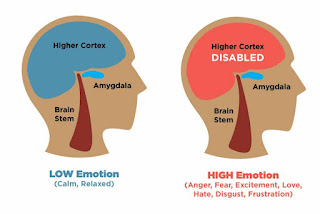Language in Society*
The hypothesis starts
when Whorf argues that the Hopi people in Arizona
do not conjugate verbs into past, present, and future tenses as English
speakers do and that their words for units of time (like “day” or “hour”) were
verbs rather than nouns. From this finding, he believes that Hopi people do not
see time as a physical object that can be counted in minutes and hours, as
contrast to English speakers. Hopi people, according to Whorf, view time as a
formless process. Others than account that Hopi people do not have any concept
of time
Its relativity can also be seen from a number of languages. English and
many other European languages normally that perceive the future in front of us
and the past as being behind us, in Swedish for instance (framtid/front time). But
In Aymara language, spoken by Aymara people who live in Andes in Bolivia,
Chile, Peru and Argentina, the word for future means “behind time”. They tend
to make backward gestures when
talking about future.
*This book which was published in 2023 was written in collaboration with Zulkhaeriyah. Double check the publisher website for further information: Language in Society (penerbitadab.id) or download for free in BOOK - Google Drive


Comments
Post a Comment